In a few years, EVs will be taking to UK roads in much greater numbers than they are today. But will the UK’s electricity-generating network be able to keep up?
Although there has been widespread concern that it won’t, the current assessment by National Grid plc (which also manages the UK’s natural gas supply) is far more optimistic. If the right steps are taken, then far from overloading the network, EVs could actually contribute to reducing energy consumption by 2050.
Thanks partly to the 2019 Climate Change Act, which aims for net zero CO2 emissions by 2050 across the board, energy supply for EVs will form part of a massive UK decarbonisation strategy. In its annual Future Energy Scenarios report (FES), National Grid lists four possible ways in which the UK’s energy model will shape up. Two of those will achieve net zero emissions by 2050.
National Grid’s electricity network is split into two main parts: the high-voltage three-phase network and the local, low-voltage single-phase networks, carrying electricity from substations to properties.
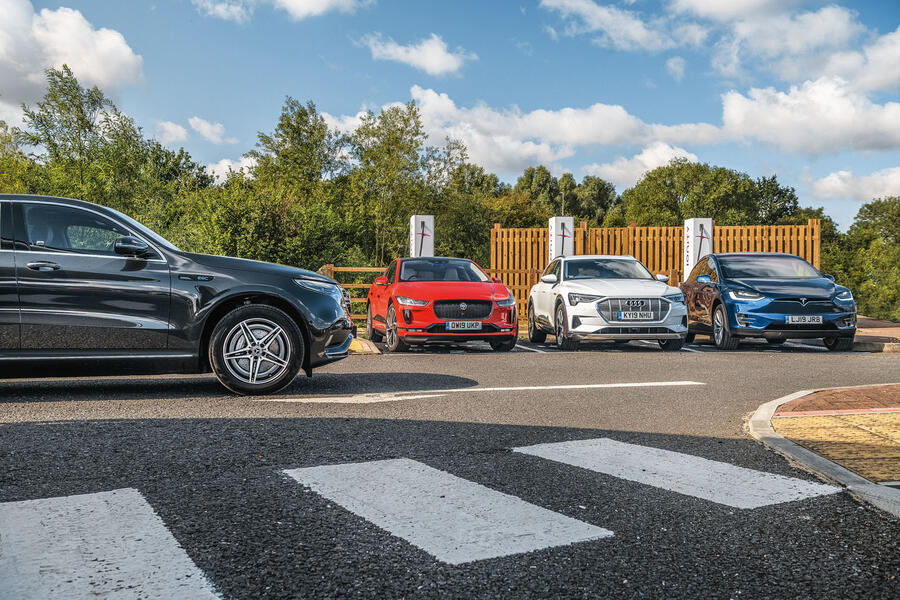
If nothing is done, it is expected that demand on both networks will double at peak periods once the mass roll-out of EVs begins, causing serious problems.
National Grid predicts that 50% of all new cars will be plug-in hybrid or fully electric by 2030 and that there will be 35 million EVs on UK roads by 2050.
In the short to medium term, it is predicted that overloading the network in peak periods can be avoided by smart charging. Smart chargers fall under the control of network operators and each charger can be told when to begin charging to spread the load on the networks into low-peak times. Successful trials over the past few years have established that consumers have no concerns with the time of day their EV gets charged, particularly because it usually happens overnight.

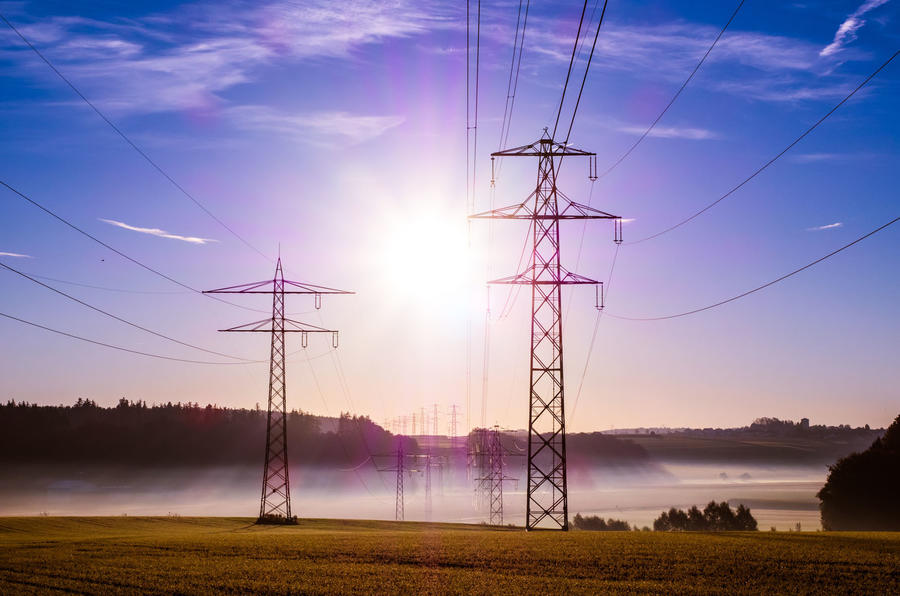



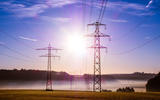




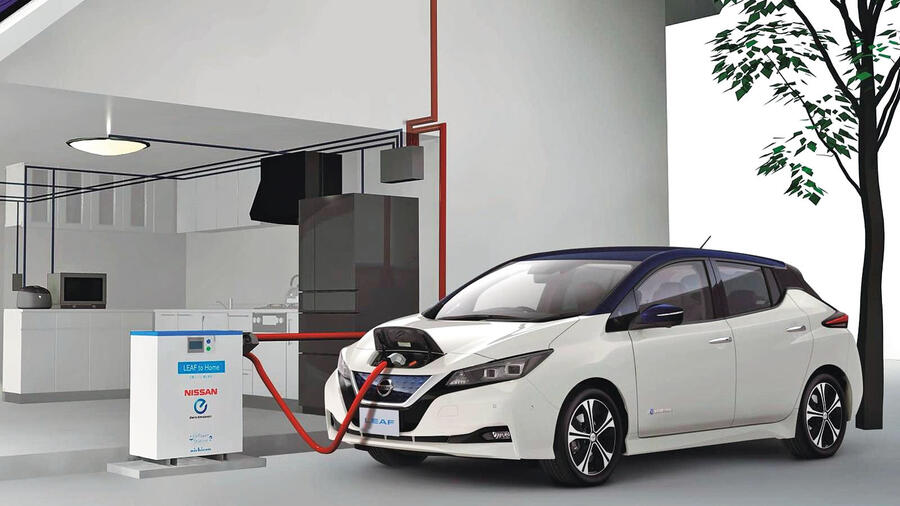
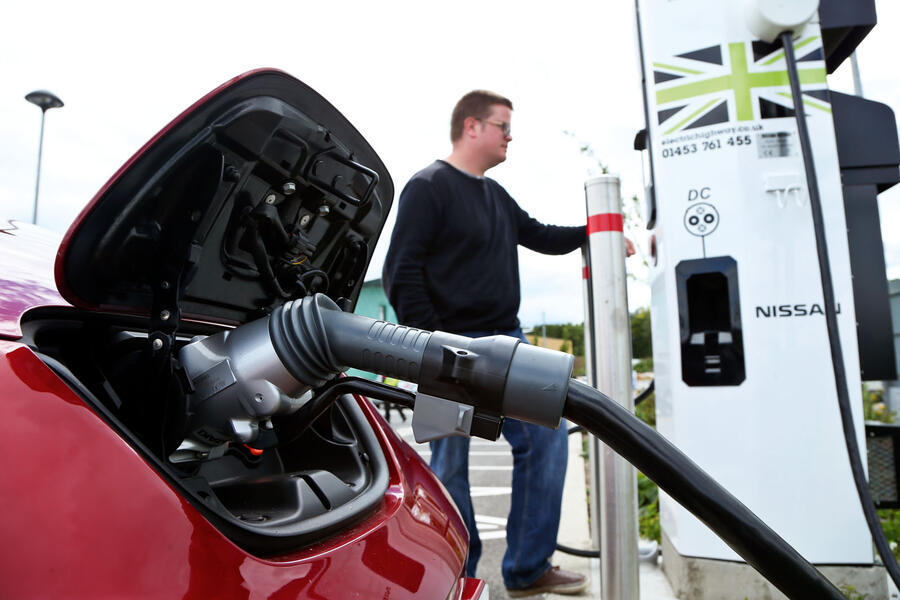


Join the debate
Add your comment
Rolls Royce
RR today stated that they are looking at providing micro nuclear reactors and site them on brown field sites to produce green energy on demand. Why dont they put a hydrogen plant next door so we can have as much hydrogen as we could ever want emissions free?
If we did this we would could have hydrogen filling stations and not have to worry about networks and external charge control, plus peolpe who live in flats and terraced housing could have green powered vehicles.
Network
You'd need a network of Hydrogen stations opposed to using the existing electric cables going to peoples houses. You'd also need 5 times as many power stations due to Hydrogen being is 5 times less efficient fuel as a pure electric car. Plus the cars are £30k more expensive
we already have a network of
little_ted wrote:
Fossil fuels are stored as liquids at atmospheric pressure.
Hydrogen is a gas at atmospheric pressure and needs to be pressurised to several hundred times atmospheric pressure.
You might be able to dig up the tanks, hoses and physical infrastructure for fossils and replace them with hydrogen equivalents but you can't just use the same tanks. It would explode.
little_ted wrote:
Lots of problems with that...
- Nuclear plants are unlikely to be built in random brown field sites around the country, for the same reason that nuclear power isn't our primary form of generation: it's dangerous. The chance of meltdown gets lower with every generation, but the damage that could be wrought by a malicious attack (think terrorism) remains enormous. That's why nuclear plants tend to be built in remote areas, some distance from major population centres, with heavy security. Rolls-Royce's designs could cut the cost of nuclear dramatically, but it would be insane to dot small reactors all over the country.
- The problem with clean hydrogen is that it uses an enormous amount of electricity. I don't -quite- agree with Xxxx that it uses 5x as much as charging an electric car, but he/she is close - it's 3x by my reckoning. That hydrogen isn't so clean if you need to build additional power plants to fuel the same number of miles as electric cars.
- The price is extreme. As others have mentioned, hydrogen filling stations are very expensive (the average cost in the US is $2.17m), and you save little-to-nothing by repurposing or adding to an existing fuel station, as they share no equipment. (Potentially the payment kiosk, but most hydrogen stations are currently autonomous.) To power all of the UK's car miles on hydrogen, at the efficiency of a Toyota Mirai, it would require a 77% expansion to the amount of electricity we generate each year, which, again, super-expensive. Finally, hydrogen fuel isn't cheap (2.7x petrol if you remove fuel duty), and obviously the cars aren't either, although that part should improve somewhat over time.
If you're worried about people in flats and terraces, well, you could buy a hell of a lot of roadside destination chargers for the price you'd save vs. building a hydrogen network.
But over a long enough timespan it won't be necessary: electric cars are getting faster-charging every few years, and there should be a particularly big jump when solid-state batteries leave the lab. Back in 2008, the Tesla Roadster could recharge 100 miles in ~115 minutes. With the Model S in 2012, that came down to ~22 minutes. Today with the Model 3 LR on a V3 Supercharger, it's 7-8 minutes. Each of those cars has also been cheaper. Hydrogen is still faster to fuel, but the gap is no longer an order of magnitude. If you have the right EV and live near the right charger, it's possible to run it more-or-less under the traditional 'fuelling' paradigm.
(Personally though, I'm perfectly happy charging at home.)
Smart charging my a**e
They need to rename it from Smart Charging to Controlled Charging, as that is what it is in reality. The energy or charger provider is now controlling how quickly your car gets refueled. For most situations, that's fine. However, imagine if you get home and your car is running at 10% battery (which will probably be most days). But your partner is heavily pregnant. You plug in and allow it to do its thing. But because there is too much demand on the grid at that time it won't charge.
Your partner then unexpectedly goes in to labour 90 minutes later. If the charger was running at normal rate, you'd have a decent amount of charge by now, especially if you had a rapid charger installed. But because your charger is controlled externally and the provider has seen that there is too much demand on the grid to give you the full beans, your car has charged a grand total of an extra 5%. You have 15% battery capacity to get your partner to hospital. Will you make it? Will you make it back?
ICE cars this isn't a problem. You can keep your car at a 500 mile range with a quick stop at a petrol station. Essentially, you could keep your tank full every day if you wanted to with a 5 minute stop on your way home.
I will never knowingly have a technology installed on my home that can prevent me from getting to where I need to be because someone in an office or an algorithm thinks they know my life and habits. Life is unpredictable.
tkemp22 wrote:
Would only happen if you worked 100 miles from home, the hospital was in a different town from your digs, if you didn't have any sort of energy storage system installed at home, and if the government had the ability to completely switch off your power (would be unlikely, given how affordable localised solar is becoming). If your wife is heavily pregnant, you should be far more prepared.
Sonic wrote:
You can be as prepared as you want. If your charger isn't functioning as you expect, that is a factor outside of your control.
Does anyone have home energy storage??? I heard a while back about the Tesla power wall, but that thing is ridiculously expensive.
Currently, anyone with a 'smart meter' installed can have their supply remotely terminated/interrupted by the energy supplier. It's not a government thing, the energy companies themselves can turn it off. It's one of the 'features' of them (My father in law works for Western Power and refuses to install one for that reason)
A common example
Emmm your partner is pregnant AND by chance your car is only at 10%, emmm call an AMBULANCE, if available use your other ICE/EV car, ask a neighbour. You're clutching at straws!
Ambulances have waiting times
Why should i use a neighbour's car? If my charger was functioning optimally the car would be charged and ready to go. There is also no guarantee that my neighbour's car would be ICE or charged because they could be in the same situation.
It's not a stretch to imagine using 90% of your car's range in a typical day without being able to recharge if you live/work outside a major metropolitan area or don't have access to a home charger because of the situation of your house and parking. I have been in the situation of doing a 40+ mile commute each way between home and work and there being no charging provision on site. BEVs are getting much much better than they were, but you only have to look at the most recent series of top gear where an 8 year old EVs range had dwindled to below 50 miles. Batteries degrade with time. It's inevitable. A BEV's headline range when new won't stay the same forever!
Pregnant couples
I can only think BEV's should have warning then:
For couples expecting only: Always have enough power to get you to hosiptal (say 40 miles) AND make sure your charger isn't broken. ALSO, do not rely on your BEV if you've no other method of transport and the ambulance service has a policy of not coming out to people with broken down cars.
Think'll it be easier keeping 50 miles worth in the battery
tkemp22 wrote:
With respect I think you've fundamentally misunderstood how smart charging and grid balancing works as this technology already exists.
Nobody will be able to force you to charge or not charge, so the pregnant wife situation you describe would simply not happen. As is currently the case with the eco7 and time-of-day tariffs there will be an inverse relationship between supply and demand imbalance and cost, meaning energy will be cheaper when demand is lower and vice versa. This will drive consumer behaviour to use more off peak electricity and thereby balance the grid without "controlling anyone". Because lets face it if you could do something cheaper without much effort you're naturally going to do it.
Let me give you an example. You get home at peak times 1700-1900 the price per kwh would be very high as demand is high. As demand falls the wholesale price will also fall and when it falls below a set level your smart charge would trigger at the threshold you set it to, say 12p/kwh and start charging.
The Zappi charger (which is already on sale) can be programmed to
A. Feed in excess solar generation at home into your car.
B. Be programmed to charge overnight at the cheapest possible times.
C. Has a set departure time, you could for example specify "have my car 90% full at 8am" and the charger would utilise the cheapest electricity rates in order to do this.
D. Finally there is the option of saying charge fast and charge now, this is what you would use in the pregnant wife scenario when you don't care about cost.
I tried to include links to the zappi charger and to the tide tariffs which already exist but spam rules won't let me, a quick google of those terms gives fairly clear results.
It would only be a very small technological leap to then directly connect live wholesale price via your smart meter to a zappi style smart charger which would 1. balance the grid without needing extra capacity and 2. reduce everyone's total costs by utilising otherwise wasted electricity. A win-win solution for everyone.
tkemp22 wrote:
15% charge on a Tesla is 50 miles, who is going 50 miles to a hospital to give birth?
Most people who are late stage pregnant do some level of preparation such as not letting their car run low on petrol or electricity. With an electric car you charge it everyday so it is full or mostly full everyday.
A 5 minute charge on a supercharger V3 will also add around 80 miles so will be functionally equivalent to a fuel stop.
Don't have babies about this...
It says in the article that the time shift can be overridden if a charge is reqd sooner.
Trouble is, pregnant or not, you never know when you're going to need your car in an emergency.
Network capacity
I do not understand how the national grid can say that the current network can cope when the whole of the south west is already at capacity, I'm building a new manufacturing facility in Torbay and western power have told us that we can only have 25% of the electricity we have asked for due to network constraints and this will not change any time soon, they even suggested they would put micro gas turbines on site to generate what they cannot provide through the grid.
Somebody is not telling the truth!